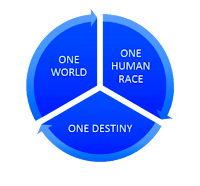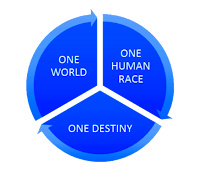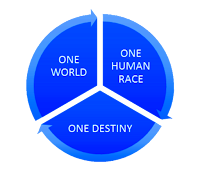JUST PHILOSOPHISING - IS IT THE CASE THAT THE TRUE VALUE OF A COMMODITY IS LARGELY DETERMINED BY ITS SCARCITY?
I have just been watching a documentary by aired on Russia Today Television station.
It was about the devastating effect water shortage and mismanagement is having on the lives of millions of people in various parts of India.
Yes, you will most likely have heard of the adverse impact water shortage is having in other parts of the world.
Such as some countries in Africa, in Asia, some states in the United States of America, and so on.
You might also have heard about the tension between River Nile dependent Egypt, and other countries accessing that mighty River in the African hinterland.
Such Ethiopia, with its newly built Ethiopia Renaissance Dam, which Egypt fears could or will reduce the amount of water it can access from the River Nile.
However, for the people in India, who are suffering water famine, they do not have the prospects of large volumes of water over which to fight.
For them, there is either no water at all, or just the ever decreasing remnant in their local reservoirs. Or that which they can extract from the very low level of water in their well.
Which they have to travel long distances to queue before accessing it. Or, in the absence of these two options, get what little they can from the visiting water trucks.
Yes, imagine having to get by each day with only a few cups of water for all you daily water needs; cooking, washing, cleaning, eth? Imagine have to literally depend on the rains to live and stay alive.
To depend on the rainfall to irrigate your crops and earn enough to eat, sell and pay off your loans.
Loans which have regularly resulted in Indian farmers killing themselves. As many as upto 10,000 per year, according to one report.
Because they have defaulted on their repayments, due to crop failure and then not being able to earn enough to repay the loans.
And how ironic is it, that some of these farmers choose to drown themselves in rivers, thereby further contaminating this crucial life source?
Just goes to show how the act of suicide can sometimes effectively become a 'selfish' weapon, which punishes others, including ones family. Thereby losing its primary intent of being an act of great desperation.
And therein lies the paradox. That water, when it is in abundant supply, is not as valuable a commodity as it is when it is not available or is in scarce supply.
Even though it is still water, and what you can objectively use it for, is not determined by it 'price', or any intrinsic value.
And the moral of all this is, this. That those of us who are fortunate enough to not having to walk miles to and from the nearest well, river, spring or communal standpipe.
To get our daily, weekly ration of this crucial life sustainer, should continue to count our blessings.
And reduce the amount of water we waste. We unthinkingly and irresponsibly consigned to the drains each day.
At the same time, all of this water famine and flooding catastrophes are further evidence of the need to address food shortage and water access in smart and sustainable ways.
There is an interplay between the two.
Do we want to increase our food supplies so speedily that, not only does it depletes our water supplies more quickly.
But it actually increases the immediate and short-term demands on the ecosystem, by increasing too quickly the population, without us having appropriate strategies to manage it?













Comments